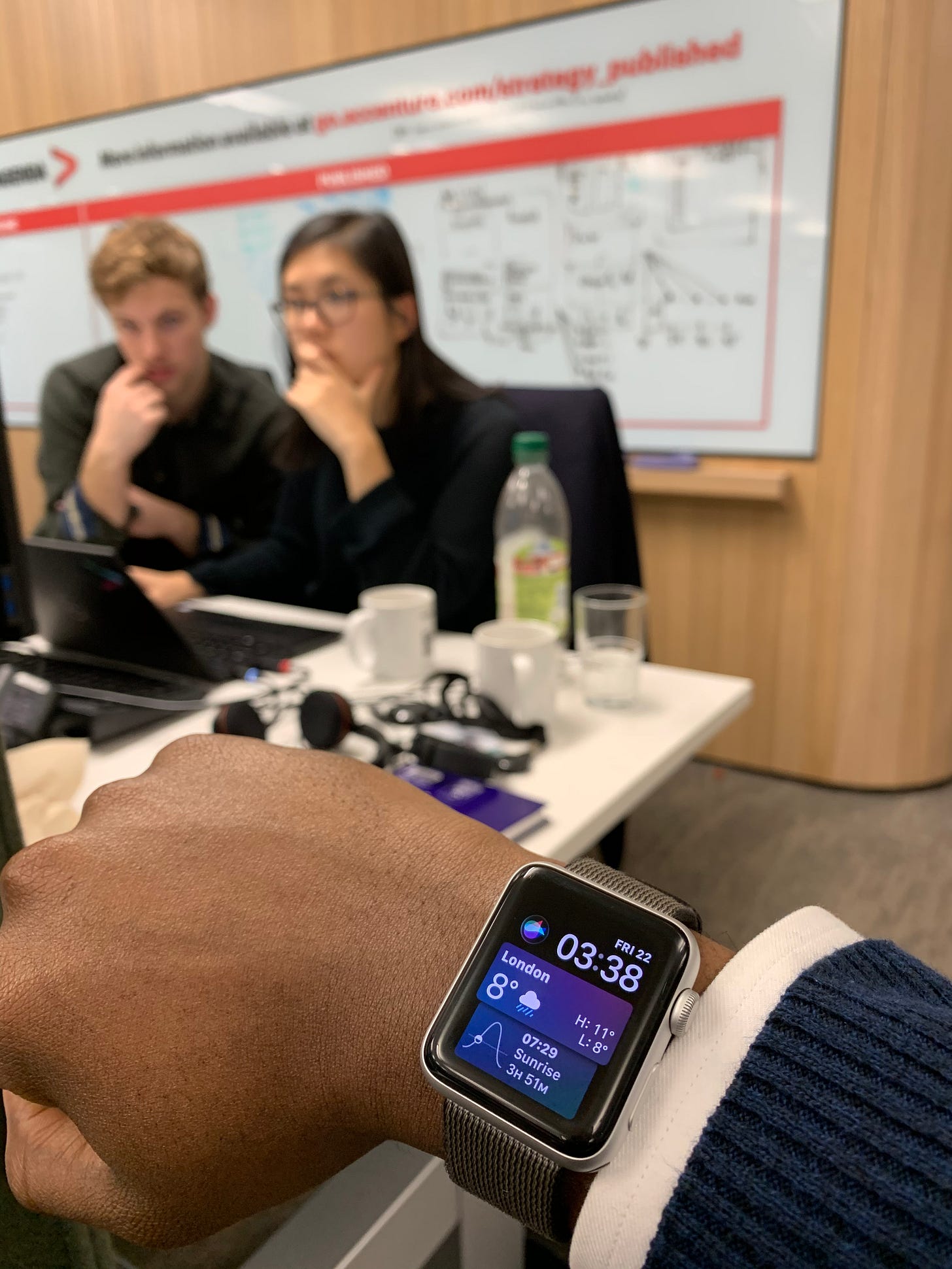Hi hi,
How are you doing today?
Before we continue on to today’s email, I wanted to remind you to write back if you’d like me to cover any topics as part of this series. See episode 1 for a list of what I’m currently planning to cover. Is there something you’d like me to theorise about? Write back and let me know!
There was a lot of talk about Sam Altman and OpenAI over the past week. I messaged my friend on Monday saying the fuss about getting him back to OpenAI was additional proof of Cal Newport’s “so good they can’t ignore you” theory. While it won’t play out on a global stage for most people, I’m confident that honing your craft and your ability to deliver value eventually results in your commanding a high degree of attention in the marketplace.
The subject of today’s newsletter is perhaps the most self-evident one in this series. Effort achieves. Almost everyone would agree. Yet, with every passing year, I see an increasing number of young people who aspire to the trappings of career success but do not wish to put in the work. I think some of that may be due to the rising prevalence of social media and the curated posts we consume. We see the bling, but not the blood and sweat. We see the funding announcements, but not the years spent building or the previous failures.

I also find that smart people are most likely to fall into the trap of seeking shortcuts. When things come easy to you, you can relax into a false sense of superiority. You may start thinking you can achieve the same results as others without needing to work as hard. I think this is dangerous slope for several reasons, but I’ll cover three.
The first is that creating great work takes time and effort. Michelangelo was an incredibly skilled artist. Yet, it took him over two years of constant effort to finish his famous sculpture, David. I was fortunate to see David in person a few years ago, and it was so real that I felt it might come alive under the right conditions. It wasn’t just Michelangelo’s skill that did that. It was nearly a thousand days of chiselling away at the block of marble. We may not be wielding hammers and chisels. But we would also benefit from allowing enough time to write and re-write and to think and think again.
Second, the journey itself offers useful learnings. It is said that it took 2,774 attempts to find the bamboo filament that made Edison’s bulbs a success. Each of those nearly three thousand failures were a useful instruction in what would not work. When I worked in Consulting, I realised that one of the things that distinguished between good Partners and great ones was that the great ones also knew what would not work in most circumstances our clients faced. Attaining expertise is sometimes as much about knowing what does not work as it is about knowing what does.
Third, in a world where breakthrough ideas are rarely unique, an unwillingness to put in elbow grease puts you at a disadvantage compared to people who have similar ideas and are willing to put in the work. In an increasingly global market for ideas and talent, there is an abundance of equally smart (or smarter) people out there who will outwork you.
I think most people who read this newsletter would agree that effort achieves. So, I’d like to switch gear and offer one very specific piece of advice. There’s a lot of good stuff out there for getting things done – tips for managing your inbox, organising your notes, when to drink coffee, and so on. They’re all useful, as long as you don’t start spending more time organising work than actually doing work.
If you could only do one thing differently after reading this email this week, let it be this: schedule time this week to do deep work. Even if it’s only one hour a day to start with, block off some time where you can think deeply about a specific (important) task or activity and create some form of output. Limit interruptions and try to stick with the activity for the full duration of the slot you booked. And then repeat that for every day this week if possible.
Good luck and let me know how you get on.
*****
What I’m currently reading: I’ve just started reading Siddhartha Mukherjee’s The Song of the Cell: An Exploration of Medicine and the New Human. I picked it up following its inclusion in Gate’s annual list of holiday reads. So far, it’s proving to be a well-written book and I’m learning lots of new things about the latest science of cells and how researchers are applying these learnings in the fight against cancer and other diseases. If you’re interested in that kind of stuff, I totally recommend the book.
What I’m currently listening to: this Today in Focus episode from The Guardian provides a neat summary of the Sam Altman and OpenAI situation. They explain what is known and not yet known about this extraordinary drama, which I think will be a Netflix movie in future. And they suggest that the people who are creating the future of AI will now be more focused on profit than altruism.


